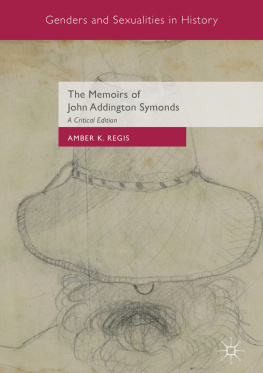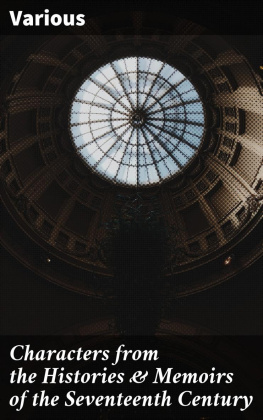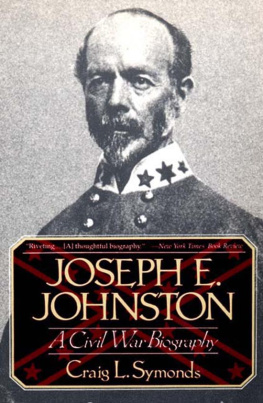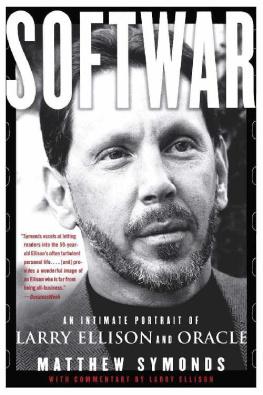The Memoirs of John Addington Symonds Written by Himself
The Victorian poet, historian and man of letters, John Addington Symonds, began writing his Memoirs in March 1889. To his friend, Henry Graham Dakyns, he reflected upon the work in progress:
My occupation with Cellini and Gozzi has infected me with their Lues Autobiographica ; and I have begun scribbling my own reminiscences. This is a foolish thing to do, because I do not think they will ever be fit to publish. I have nothing to relate except the evolution of a character somewhat strangely constituted in its moral and aesthetic qualities. The study of this evolution, written down with the candour and precision I feel capable of using, would I am sure be interesting to psychologists and not without its utility. There does not exist anything like it in print; and I am certain that 999 men out of 1000 do not believe in the existence of a personality like mine. Still it would be hardly fair to my posterity if I were to yield up my vile soul to the psychological investigators.
[] You see I have never spoken out. And it is a great temptation to speak out, when I have been living for two whole years in lonely intimacy with men who spoke out so magnificently as Cellini and Gozzi did.
Having worked as a translator of life-writing, Symonds caught the contagion of his subjects lues autobiographica their autobiographical plague. He resolved to speak out, a turn of phrase borrowed from Matthew Arnold: He never spoke out . In these four words is contained the whole history of [Thomas] Gray, both as a man and as a poet. Fearing himself a Gray-like figure, at risk of being lost, misunderstood or forgotten amidst the works left behind him, Symonds commenced his most extraordinary writing project: an account of his experience as a homosexual man living subject to the moral and legal constraints of nineteenth-century society.
Symonds wavered between conflicting assessments of the Memoirs potential use and value: the act of writing was a foolish thing to do, but the resulting text was not without its utility. He believed the manuscript would provide an important record of an otherwise elided facet of human existence, and he determined to present his sexuality as an integral part of broader roles, responsibilities and identifications. Born in Bristol in 1840, he was acutely aware of the intellectual inheritance received from his father, a highly respected physician, and the duties owed to his family (which included three sisters: Edith, Mary Isabella and Charlotte) as the only surviving son. Symonds married Catherine North in 1864, adding husband and father (to four daughters: Janet, Charlotte or Lotta, Margaret or Madge, and Katharine) to the roster of familial responsibilities. Symonds had somehow to accommodate a narrative of sexual development within this otherwise normative framework. The Memoirs also present a panoramic view of the social, cultural and intellectual milieu that prepared men of Symondss class to take their place among the ruling elites of Victorian society: public school, university, foreign tours, personal and professional networks of friends and acquaintances. His account explores the function of these spaces, journeys and relationships in the construction, regulation and expression of licit and illicit identities, gender and sexuality. In response, Symonds attempts to construct a socially legitimate conception of same-sex desire, drawn from studies of ancient Greece, Renaissance history and culture, the poetry of Walt Whitman and emergent sexological literatures. His Memoirs document these efforts, complicated further by narratives of disease and poor healthhis suffering from phthisis (tuberculosis).
But if the Memoirs could be useful, Symonds reserved their utility for posterity. In a Preface appended to the manuscript in May 1889, he appropriates the self-deprecating remarks of Carlo Gozzi, who called his Memoirs useless, and published them (as he professes) from motives of humility. Mine are sure to be more useless than his; for I shall not publish them (p. 59 in this edition). However valuable the record of his multifaceted life, however precious the evidence he assembled, Symonds knew that immediate publication was impossible. Even if he found a publisher willing to set the type, booksellers in England would have risked prosecution under the terms of the Obscene Publications Act 1857. Perhaps more worrying still, the details recorded in his manuscript threatened more than just the reputation of those named within its pages. The Criminal Law Amendment Act 1885 had criminalised sexual acts between men: imprecise in terminology but far-reaching in consequence, it declared that so-called gross indecency in public or private could be punished by up to two years imprisonment. Symonds was an expatriate writer, moving to Davos in 1877 and dividing his time between Switzerland and Italy. He lived and worked outside the reach of these laws: in Switzerland, customs and legislation varied according to canton, but the influence of the French Code Napoleon could be felt in the general tolerance of private acts; in Italy, the Penal Code 1889 (again, following the precedent of the Code Napoleon ) decriminalised homosexual acts between consenting adult men. But England was home to Symondss friends and extended family, and he continued to write for an Anglophone audience. As such, he was sensitive to the hurt his Memoirs might causeeven after his death.
In the Preface, Symonds imagined two future readerships for his manuscript: the first was scientific, the second was sympathetic. Psychologists and sexologists (the latter a burgeoning field of research on the continent that was soon to make inroads in Britain) might welcome the evidence contained within its pages: they might appreciate [his] effort to be sincere in the dictation of a document (p. 60 in this edition) that could form the basis for future study. Other readers, he hoped, would feel some thrill of pity (p. 60 in this edition) at the record of his life. In both cases the intention was to advance change: to challenge medical misunderstanding, legal injustice and social prejudice through the act of self-revelation and self-analysis. To this end, Symonds worked hard to ensure the manuscripts survival after his deathfearing, not without justification, that it might be destroyed. But he also left instructions for caution to be exercised with regard to publication, for he wished to protect the reputation and happiness of his surviving family. That these instructions were followed is remarkable, and his Memoirs are a fascinating and rare survival.
The present edition is the first to reproduce all the manuscripts surviving materials, allowing its wonderfully detailed, diverse and digressive narrative to stand. The Memoirs of John Addington Symonds Written by Himself, to give the manuscript its full title, has been made public on two previous occasions: a significant body of material was printed in John Addington Symonds: A Biography Compiled from his Papers and Correspondence (1895), a dutifully sanitised work undertaken by his friend and literary executor, Horatio Brown; and in 1984, nearly one hundred years after the manuscript was assembled, Phyllis Grosskurth produced an abridged edition containing two thirds of the original text. The present edition enables a first full reading, and by way of preface, the remainder of this introduction is concerned with the history of the manuscript: the difficulties, idiosyncrasies and contingencies that marked its composition and compilation, and the obstacles to reading that have characterised its legacy and afterlife. Since his death in 1893, Symondss manuscript has passed through many hands, subject to restrictions and regulations imposed by successive custodians. His attempt to speak out is bound up with the actions of relatives and executors, biographers and editors, libraries and publishersit is a history to which the present edition adds another chapter.









